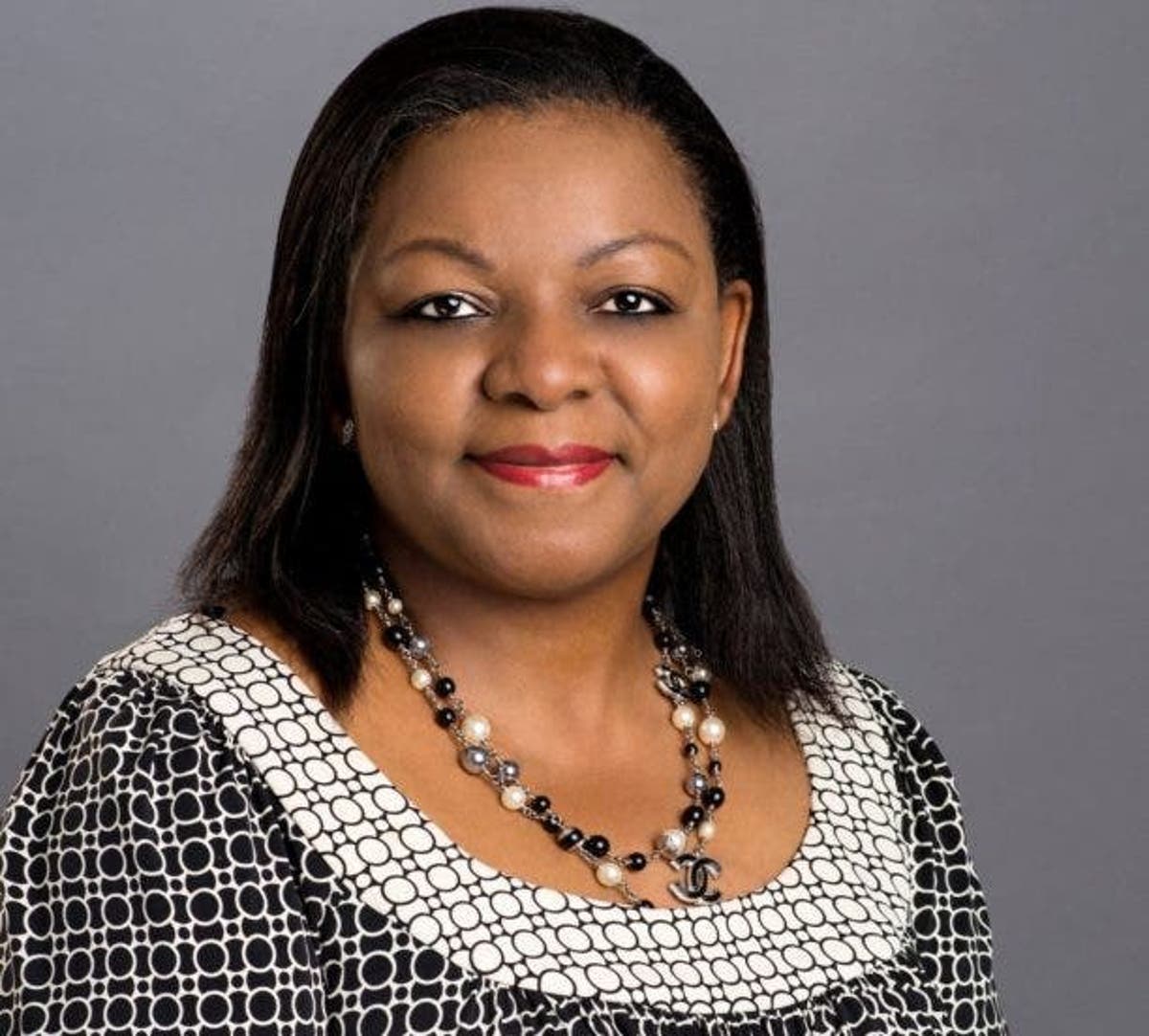“Discrimination against women makes no economic sense in this pandemic era”
Share

The chairperson of Standard Chartered Mauritius’ Board, senior vice-chairman for the African region at Standard Chartered and co-vice chairman of the United Nations Global compact board is adamant that gender equality should not be viewed as a privilege but as a right. In this pandemic era, women have a major role to play in order to put the economy back on track, insists Bola Adesola.
You have challenged gender bias and inequality in your career path. What lessons and experiences can you share as a female leader?
The fight against gender bias and inequality is an ongoing one. Women must be continuously encouraged to find their voices and to move from greatness to effectiveness.
From my experience, I can say that a lot of factors affect women, especially societal and cultural perceptions. For a very long time, women have been brought up with the notion that while we can do anything, we also cannot do some things by virtue of gender. For example, as children, in their free time, boys could play while girls were required to catch up on chores.
As adolescents, intelligent and expressive young girls are considered loud or loose and should be controlled; while boys should be encouraged for leadership. This has led a lot of women to develop the personality trait of followers instead of leaders. In the workplace, women are told directly or indirectly the many cant’s. They can’t manage both a career and a home, thus they can’t pursue career progression because their families will suffer; women can’t aspire to leadership positions because women do not have the temperament or personality for leadership (too soft, too emotional, too distracted, etc.) or women can’t be as successful as their husbands or male counterparts; an intelligent woman is most likely an arrogant one, and so on.
With these notions, many women, whether directly, indirectly or by association, have created or accepted or championed the concept of the glass ceiling. From my experience I would say even though it is true that gender bias and inequality do exist especially from societal and cultural expectations, women are often the main creators and acceptors of these restrictions.
The greatest restrictions we face in life are the ones we place on ourselves. Women and men alike must come together to continuously challenge gender bias and inequality.
International Women’s Day on 8 March was particularly important this year, as Covid-19 threatens decades of progress towards gender equality. In this particular context, how can women in leadership make a difference?
The theme for this year’s International Women’s Day was #choosetochallenge. It was a call to action for every one of us in the world to decide and choose to challenge gender inequality, bias and all forms of discrimination against women. Covid-19 has revealed the massive burden women all over the world have to bear. These include regulatory and cultural biases, as well as lack of access to education, capital, market information, domestic violence networks and technology. A new light has been shed on the need for a strong gender equality perspective in all policies, along with the right resources, in order to lessen the gendered impact of the crisis.
During the thick of the crisis, female jobs were more at risk than that of men. Reason was that women had more than the average share of employment in three of the four most affected sectors as measured by employment declines globally: Accommodations and food services, Retail and wholesale trade, Arts, recreation and public administration. The pandemic has set us back on the progress made in achieving SDG 5, Gender Equality in 2030. Women in leadership must rise up, we must all place an intentional focus on the lives and the future of women in order to break structural practices which have been marginalizing us. There must be a call to challenge gender stereotyping everywhere, especially in the workplace. These conversations should not be a case of just ticking the box. There must be dedication to the cause.
According to a survey by the Mauritius Institute of Directors and Korn Ferry, the female presence has stagnated at 8.7% on the boards of directors of private companies. By way of comparison, the presence of women on boards of directors is 40.1% in Norway and 36% in France. What is the solution to change this, when we know that the quality of corporate governance and ethical behaviour is high in companies with a strong proportion of women on boards?
Women’s representation on Boards is an indicator of the progress made to create a more equal, diverse and balanced representation in all spheres of society. I believe this is the ultimate goal of a journey but this is true at every level of society. In organisations, we have the responsibility of creating the right environment for women to thrive and achieve their full potential. Practically, this means developing a pipeline of talents at the most junior levels and give these talents the tools and infrastructure to climb up the ladder – training, coaching and opportunities. In Mauritius, where you have one of the highest literacy rate of Africa and where girls have equal chances of accessing free education, we can raise awareness amongst the girls themselves about the opportunities they have to fulfil their ambitions and dreams. I understand that the government of Mauritius has taken steps to level the playing field for men and women in a few ways already. At local government elections, that is, village council and city council elections, the candidate list of each group should include at least 3 men or women out of a 9 candidates.
“WOMEN IN LEADERSHIP MUST RISE UP”
This is an interesting gender neutral quote. I have also noted that in 2019, the law was amended in Mauritius to require public-listed companies to have at least one woman on their board of directors. Although these measures may appear to be small steps or less ambitious than expected, this is a commendable start and it is an indication of direction of travel of the country. At Standard Chartered, we’re passionate about promoting equality in the workplace and have a number of policies and commitments that support women. We also have global flexible working practices and increased benefits for new parents. We train staff on unconscious bias and have safety initiatives in countries with a history of heightened violence against women. We also want to empower adolescent girls with the confidence, knowledge and skills they need to fulfil their potential.
To that end, Standard Chartered has developed an empowerment programme called ‘Goal’ for adolescent girls and this programme is currently being delivered in 31 secondary schools in Mauritius. The programme provides these girls with the basic tools to develop their confidence, their leadership by learning to know themselves, their rights and their needs.
There are so many women working in the Mauritian banking sector, but is there any particular reason why very few of them occupy the very top management positions?
The high literacy rate of Mauritius can partly explain why girls have successfully occupied this space. Having access to tertiary education to develop further their skills and competences have certainly contributed in creating opportunities in the service sector, which is more accessible to girls in general. The paradox is that these girls and women, as they progress in their careers, face many challenges. One of them is that women are often primary care-givers at home and do not have the support system that would allow them to fully access further levels in the organisation, as their time and resources are divided between home and workplace.
More often than not, women sacrifice their own career progression for the benefit of the family. A woman may make a personal and independent choice not to advance in her career, and that choice should be respected. It is a problem when women feel that they don’t have a choice and an organisation does not embed the infrastructure for women to thrive in the multiple roles they embody. Secondly, we should not ignore the adverse impact of conscious and unconscious biases in the workplace. Conscious gender bias is easily detected as it is an overt negative behaviour that can be expressed physically or verbally and generally, it can be prohibited with anti-discriminatory laws. But unconscious gender bias can be a real barrier to career advancement. Unconscious gender bias is unintentional and it often stems from culture, values, upbringing or experience and for that reason, it can be difficult to identify and prevent. Organisation should take bold steps to create awareness on unconscious gender biases and implement measure to address this issue.
“AT STANDARD CHARTERED, WE ARE NOW TARGETING TO ACHIEVE GENDER EQUALITY AT ALL LEVELS BY 2030”
These dynamics are changing, albeit slowly. For example, we see more and more support from organisations that provide work from home or flexible working facilities. Another aspect is that the organisation may not provide the right environment for women to access the same opportunities offered to their male counterparts, be it training, assignments, projects, promotions. And we have a responsibility to make sure gender equality is reflected in our policies and that it allows us women to access equal opportunities. At Standard Chartered for instance, we have created an environment that allows women to be primary carers while not sacrificing their career. This includes twenty weeks maternity leave to the minimum, flexible working arrangements and we have committed to have 30% senior women representation by 2020 – which we achieved 29.5%. We are now targeting to achieve gender equality at all levels by 2030.
Covid-19 has been called the ‘Inequality Pandemic’, meaning that existing gaps have been exacerbated by the crisis. Now more than ever, there is a need for inclusive economic development. According to you, how do we go about achieving it?
The pandemic has exposed fundamental weaknesses in our global system. It has re-enforced the interdependence of our world. It has brought to the fore the urgent need for global action to meet people’s basic needs, to save our planet and to build a fairer and resilient world.
Discrimination against women makes no economic sense. As I usually say, you cannot clap with one hand. You need both hands to be able to clap. This is the same way you need both men and women for proper economic development. We must understand that what is good for gender equality is good for the economy and society as well. Several opportunities exist such as; educating the girl child. For every woman you educate, you educate a family, a household, a nation. At the workplace, we must also rethink performance reviews and promotions and close the gender pay gap. We must also be intentional about having more women in senior leadership positions. For example, at Standard Chartered, we recognise that to unlock our greatest potential, we must strive to achieve gender parity.
Female senior leadership representation has increased from 25% in 2016 to 29.5% in 2020 and we recognise that we still have more work to do In terms of financial and digital inclusion, a lot of essentials have moved to online channels making it tedious for those who have no access to digital devices. The gender gap in digital access may keep these opportunities away from women, especially those living in low-income countries and rural areas. It is therefore very important to close the gender gap in financial and digital inclusion.
I would say individuals, senior female leaders, governments, private companies and businesses need to run campaigns to tackle and address these stereotypes. We must work together to build an inclusive world where everyone thrives in peace, dignity and equality









